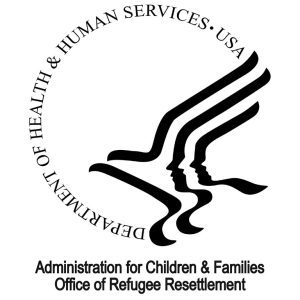The American Rescue Plan, in response to the COVID-19 pandemic, provides the largest Child Tax Credit ever. As of July 15, 2021, most families with children are automatically receiving monthly payments of $250 or $300 per child without having to take any action. However, some ORR-eligible populations may be missing out. Below is information about the Child Tax Credit and what refugee service providers can do to ensure their clients are receiving these funds.
What is the Child Tax Credit?
It is a monthly payment to working families. For those with children over the age of six, the new Child Tax Credit for the 2021 year increased from $2,000 per child to $3,000 per child. For children under the age of six, the amount rose to $3,600. The child age limit also increased from 16 to 17. By providing additional resources to families, some experts estimate the new Child Tax Credit has the potential to cut child poverty in half.
Who is Eligible?
Working families will get the full credit if they make up to $150,000 for a couple or $112,500 for a family with a single parent (also called Head of Household). Those who filed tax returns for 2019 or 2020, or if they signed up to receive a stimulus check from the Internal Revenue Service (IRS), will automatically receive this tax relief. They do not need to sign up or take any action.
How You Can Help Clients
Refugee families and those served by ORR programs may be missing out from this automatic benefit if they have not filed their taxes in 2019 or 2020, for instance, because their earnings were under the required income bracket. However, as long as a family has been in the U.S. since June 2020, they are eligible for the Child Tax Credit. Additionally, information collected will not be used to investigate their immigration status.
Since the Biden Administration estimates several million eligible children are part of families who are “non-filers,” refugee service providers should work to ensure that all clients are receiving this crucial tax relief. The best way to do this is by educating and assisting clients to learn more about the Non-filer Sign-up Tool developed by the IRS. The tool allows individuals to easily provide information to the IRS to determine if they qualify for the 2021 Child Tax Credit.
Refugee service providers can also remind families that receiving Child Tax Credit payments will not change the amount these families may receive in other Federal benefits like unemployment insurance, Medicaid, Supplemental Nutrition Assistance Program (SNAP, formerly the Food Stamp Program), Supplemental Security Income (SSI), Temporary Assistance for Needy Families (TANF), Special Supplemental Nutrition Program for Women, Infants, and Children (WIC), Housing Choice Voucher Program (Section 8), Social Security Disability Insurance (SSDI), or public housing. Since the Child Tax Credit is not considered income for any family, these Federal benefits are not impacted.
Furthermore, since ORR-eligible populations are exempt from the public charge rule, access to this benefit will not affect the ability of individuals to adjust their status to lawful permanent resident (LPR) or impact their eligibility for other immigration benefits.
Resources
- Frequently Asked Questions (FAQs) about the Child Tax Credit, The White House
- Child Tax Credit for Non-Filers, The White House
- Child Tax Credit Non-filer Sign-up Tool, IRS
- FAQs about the Non-filer Sign-up Tool, Free File Alliance (partnership with IRS)
- Simplified Tax Filing Portal to Claim the Child Tax Credit, GetCTC (developed by Code for America in partnership with the IRS)
- Child Tax Credit Outreach Materials: flyers, social graphics, GetCTC
- Data Visualization Map of Non-Filer Zip Code Data, Tax Policy Center
- Recorded Child Tax Credit Navigator Training, ACF’s Office of Early Childhood Development










